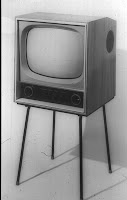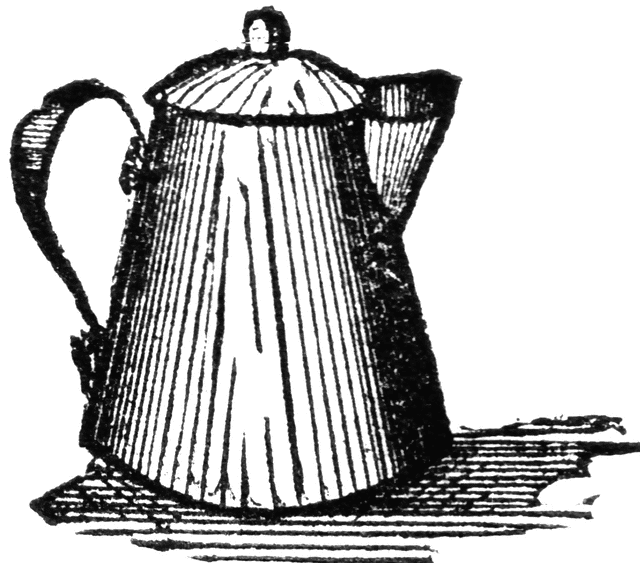In her introduction to the 1994 edition of "Damned Whores and God's Police", the wonderful Anne Summers wrote "I believe that to address these questions [of women's struggle for equality] adequately, a new book is needed and I hope that someone, somewhere, right now is hatching another 'big book', a sweeping feminist perspective on contemporary Australia, because we need another interpretation, a new perspective ... We need new voices, and new visions."
I read those words for the first time in 2003. I had gotten married that year, and was busy falling pregnant. I gave birth to my daughter early in 2004, and settled neatly into my new found role as wife and mother. I helped in my husband's business as a secretary and book-keeper and cooked healthy and satisfying meals for my family from the Women's Weekly. I kept the house clean, my husband's shirts ironed, and my baby's bottom dry. Sometimes when the baby was asleep I would write short stories to amuse myself that I never shared with anyone. Occasionally, my feminist best friend would call me on the phone, we'd chat, and at some point she'd laugh and say "you are the typical housewife. You've turned into your mother". Of course I hadn't, I scoffed back. I had a job, my child went to daycare three days a week. This being the epitome of working motherhood to me. That, and all the associated guilt that came with it that Ita Buttrose ("Motherguilt: Australian Women Reveal Their True Feelings About Motherhood") and her ilk told me was right and proper that I should be feeling. I had read Greer's "The Female Eunuch" and Summers' "Damned Whores and God's Police". I thought I understood the issues, and I empathised with the few feminists I had met. What I didn't understand was why they had to be so angry about it all the time. They were missing the point. We had come so far, already. We didn't have to worry about getting the vote, or equal pay for equal work, or sexual freedom. We had all that. What more did they want? Really?
Four years later, I found myself celebrating the second anniversary of my divorce with a melancholy kindergartner torn between two homes. At the age of 27 I had finally discovered that it was possible to have a job that I enjoyed and that also paid the bills, and it was the only thing keeping me sane. I started watching the world around me with jaded, cynical eyes, and writing down the things I saw. I found myself re-reading Anne Summers book, and her words sang away in the back of my mind. I dug further, craving more information, and gradually became familiar with the online world of hurting, angry, and pained feminist bloggers. I started reading what they wrote - not the vitriolic and accusatory words they used, but what they actually were trying to say. And when I cut through the verbiage, I heard one thing over and over again: Why is this still happening?
Feminism is now a dirty word. Efforts to achieve gender equality are encouraged to employ language that is less confronting and not quite so scary. Young women don't want to be feminists any more, we're told. Feminist rhetoric everywhere is beset by women commenting that the authors are beating dead horses, and they just wish we'd all stop talking about it already.
Where does this disconnect come from? Why was it that while I was fulfilling my role as a wife and mother that I thought we had equality? Why was it that not until I ventured into the online world did I discover this apparent lingering inequality in our society? I think it had to do with a number of different factors.
Perhaps the most glaring answer was that I was now viewing the world via the social web, rather than the mainstream media. My news was no longer filtered by what would sell newspapers and magazines, but by what people found interesting. The natural result of this of course is that when you read one feminist blog, it links to another so you read that one as well. That one might link to a few different articles, and another blog. Eventually, you find that your entire morning news consists of feminist ranting and not much else. That, in itself, had a lot to do with my perspective, but it didn't fully explain whether the deception occurred in the years before I started reading blogs, or after.
I also wondered if it was because I now had access to individual and very personal accounts of sexism and inequality. These were stories being shared directly by victims. Prior to reading my first ever feminist blog, I had never been friends with anyone who had experienced anything so brutal, demeaning, and sometimes violent as these stories I was reading now. Was this a matter of statistics? It is entirely believable that the number of people recounting these acts were statistically insignificant, meaning the problem where it existed was truly horrifying, but probably not anything worth actually getting upset over, unless you were the victim of course. After all, there are a small percentage of people in the world that can only be considered sick fucks. We all know they exist, we do what we can to combat it legally and socially, and we all recognise that the whole of human society is not at all like that. This had a ring of truth about it too, but it was still hard to swallow as a complete answer.
Eventually, something came up in a conversation with a friend of mine. We were discussing geek culture, and how being a 'geek' suddenly had street cred and everyone wanted a piece of the action. Everywhere she turned, she was faced by people who had never done anything more with technology than log into Facebook, but they were suddenly branding themselves as a geek. Icons of geek culture - such as Star Wars, the Hitchhikers' Guide to the Galaxy series, Battlestar Galactica, and an overt interest in fonts - were being adopted in the most mainstream ways. It was enough to make HG Wells turn in his grave, she said. Suddenly, geek was the new black: everybody was making jokes involving hex codes, everyone had a Twitter account, and every photo of a cat had a poorly spelled caption. And that was when it hit me. It wasn't that the internet had opened my eyes to sexism that had existed all along. It was that sexism existed on the internet in a way that it no longer existed in the rest of society. Online society reflected real life, but it was socially many significant steps in the past.
Internet culture has long been the stronghold of the uber-geek. Before MSN Messenger, Google, and Facebook made the internet accessible for everyone it took quite a lot of technical know-how to be able to get online in the first place, let alone find your way to online social groups and communities. Not everyone knew someone technically literate enough to get them online, and keep them there. Many people weren't quite sure what they would do if they did get online. The internet was full of strongholds like USENET and IRC, inhabited by mathematicians, engineers, scientists and university students. They all spoke a special language comprised of acronyms, in-jokes, and slang that served to filter out the general public. For the most part, they were quite happy to keep it that way. I was at university in those days, so hanging out in an IRC channel or two was expected, but you didn't dare speak up too loud, or wander into the wrong BBS, because it wouldn't take long before you either showed your ignorance, or had some channel operator ask who you were and what you thought you were doing there. By keeping the riff-raff out of the networks, they were able to discuss their projects in detail without being bogged down by silly questions; they were able to monitor and filter what was said, and by whom. Although it was probably unintentional, these enclaves were also able to maintain the notion that they were part of an elite minority. They were the ones who ruled the internet - they would choose who could come, and they would choose who could stay. Overwhelmingly, the people who were making these decisions were male. It was not that they did not allow women in, so much that there were very few women who wanted in, or even knew about it. There weren't that many women in their offline communities, so there were very few women invited into the newly developed online ones. So it was that with this technological leap forward into the early dotcom years, the skewed gender profile of generations of science and engineering labs filtered into the next great social revolution.
Acronyms and industry jargon have always been used to delineate those who are in the group from those who don't belong. This is true in no place so obviously as the internet, particularly in those early days when internet access was just starting to creep into homes. Just like the offline world, outsiders have increasingly found themselves having to fight for acceptance into this culture. The technology that allowed access to all and sundry has, unfortunately, moved slower than the norms and rituals surrounding it. Which leads us to an interesting situation. Offline, women have achieved a lot in terms of gender equity. Sure, there is still work to be done, but for the most part women enjoy freedoms and equality that Germaine Greer and Anne Summers, when writing their seminal works, didn't even have the words to describe. Online, however, is a different story.
Rule 16 of the internet states: "There are no girls on the internet".






